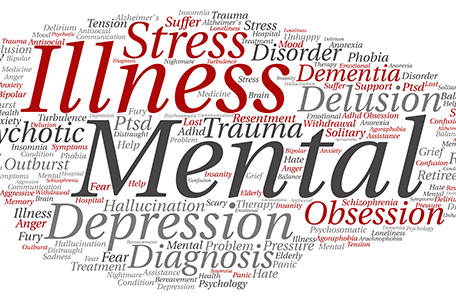
By Kendall Alexander
@SteezieKBreezie
Mental health is something of paramount importance, especially in the Black community. It has never been easy for us to discuss our issues in terms of mental health because of the stigmas we attempt to fight. If you grew up in a African American household or identify as apart of the diaspora folk, you’ve heard someone close to you say at least once, “who needs therapy when you have church? Pray on it, God heals all,” or “I don’t need therapy, there’s nothing wrong with me a little (insert self-medicating tool) won’t fix.” Therapy is essential for Black folk simply because of the damage that has been done to our psyches for hundreds of years, to the point that it is engrained in our DNA and is a factor to the slew of health problems we face as a people. For more on this subject, there is an article on Post Traumatic Slave Syndrome by David Love on ‘Atlanta Black Star’.
Even if you believe you are “normal,” it is still a healthy way to express your thoughts, emotions, etc. to an outside party who can at least give you pointers on how to cope from a professional and objective point of view. I go to therapy pretty regularly, and even if there are times I feel I don’t need to go, I set an appointment, as it allows me to understand that I’m not the only one going through x situation and there may be better ways to address such.
Which leads me to why I wanted to write this piece to begin with: you are not the only one. May was Mental Health Awareness Month, and I feel I would be remiss as a member of the Black media not to inform my people about my personal journey with mental health in the hope that it helps someone find a way out of their situation when they feel so isolated.
Growing up was not easy in the Alexander household for a multitude of reasons, and those reasons affected my siblings and I differently. At a young age, my parents sought me out for emotional responsibility, enough to carry the weight of their divorce and the drama that ensued thereafter for most of my adolescence whether I agreed or not. I had to be strong and conceal my emotions so my siblings and parents had someone who listened. In retrospect, this experience allowed me to protect and safeguard my loved ones, and grow a patience I didn’t know I was capable of. This behavior also caused me to suppress emotions and get wrapped up in what others needed and what I could fix, when I should’ve been fixing myself.
I have always known mental illness ran in the family. I grew up hearing about it from cousins, aunts, and uncles who dealt with theirs, but I didn’t realize it would find a home in my immediate family. Looking back, the signs of multiple pent up traumas took it’s toll: isolation, depression, random outbursts, temper tantrums, trouble making friends and keeping employment, self-inflicted wounds, and self-medicating. I grew up with these signs and saw they were ignored. Maybe for fear, or nowhere to turn, maybe we were unaware of how severe the psychosis had become, or that resources weren’t available for proper treatment needed to combat symptoms.
Friends and family alike have asked me about it over the years and have been met with different responses. I have been asked outright what is wrong, or what’s going on to make them that way, to which I have shrugged my helpless shoulders or offer a curt reply. I used to be ashamed, to the point that some of my friends have no idea I even have another sibling, but in my mind, it was easier to not talk about it because no one else was.
Years later, untreated psychosis has taken its toll on the Alexander family. There is a lingering state of dysfunction because no one took the necessary steps to address the elephant in the room: mental illness. Imagine my echaustion when I enter the house to be informed of another broken household item that will go unrepaired or knives missing from their designated place because fear has been instilled instead of fortitude.
Trauma runs deep and will completely take over your life if it goes untreated for too long, I’ve witnessed such my entire time spent in Philadelphia. After the separation, my family has struggled with trauma so deep it consumes, in the forms of excess drinking, depression, hoarding, and drug use, and a bitterness so overwhelming it suffocates. This environment has given me more of an interest in psychology and how the brain works, and has allowed me to take necessary steps to address my own psyche, and thus change my life.
Self-care is something I am still learning to master, and a great tool is meditation. I am a strong advocate for this practice because when it feels like I’ll never find solace, I can find a place to get in touch with myself and my thoughts and the result is one of focus and resilience.
Other positive outlets like art, music, exercise, and therapy are necessities for me, and finally learning to say no as a complete sentence because I just can’t be everything to everyone without self-assessment.
Historically, Black women do not pay enough attention to self-care, which can combat many illnesses that plague our community including hypertension, stroke, diabetes, and mental illness.
Black men and women must address their mental health concerns separately, as we do not have the same struggles. Men typically were raised with a hyper masculine mask on to face the world, never stopping to care for their own emotions for fear they would be seen as weak. Women on the other hand, have been told they are nurturers and have to care for everyone else around them, never themselves. These stereotypes are not only damaging to our community, but oftentimes indirectly destroy the Black family when unaddressed.
We as a people have to know when we’re not OK and when we need to seek professional psychological and neurological help. There are too many of us going untreated, and the problem manifests in other avenues of our lives. Caring for your mental health has all the benefits in the world, and you become stronger for your willingness to take the journey into your best mental state.
See this week’s SUN health section for information on other mental health options.
















Leave a Comment